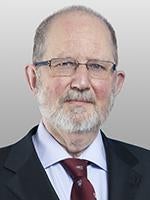After ten years in office, Ban Ki-moon, the UN Secretary General (UNSG), will retire from the UN at the end of 2016. The race for his successor is already underway. Last December, the Presidents of the Security Council (UNSC) and of the UN General Assembly (UNGA) sent out a joint letter soliciting candidates from member countries.
The UN consists of 193 member states, traditionally divided into geographical groups, such as African, Latin American, etc. Certain important positions, including that of the UNSG, rotate among these groups, although this happens by custom and precedent rather than by some written rule of the UN Charter. After the Middle Eastern group (Boutros Boutros-Ghali), the African group (Kofi Annan) and the Asian group (the incumbent), the rotation system would have the Eastern European group take up the office of the Secretary General for the next four years (with the possibility of reelection).
Several candidates have already been put forward in response to the letter of the two presidents. Croatia has nominated Vesna Pusić, until recently the country’s first deputy prime minister and minister for foreign affairs. Alas, her government collapsed soon after her nomination was submitted and it is unclear whether she still enjoys her country’s support.
The former Yugoslav Republic of Macedonia has nominated its former foreign minister and a former UNGA President, Srgjan Kerim. And Montenegro has nominated Igor Lukšić, its current foreign minister.
The letter of the two presidents invites candidates to come forward by the end of July, though it doesn’t actually specify when the nomination process would close. A number of other candidates will emerge, and several are waiting in the wings. The ex-Yugoslav contingent is complemented by Danilo Türk from Slovenia, a former UN Assistant Secretary-General and a former President of his country, who declared his candidacy some two years ago, as well as by Vuk Jeremić, the former Serbian Foreign Minister who is reputed to have made quite a mess of his job as President of the UN General Assembly (2012-13).
Bulgaria is the home of no fewer than two potential candidates: Irina Bokova, the Director-General of UNESCO, and Kristalina Georgieva, a second-term European Commissioner and currently a Vice-President of the Commission. Bokova used to be favored by her government – but her government, too, has since changed and the new Bulgarian government, with a right-of-center orientation, prefers Georgieva.
Nowhere is it stated that a country could not put forward two candidates (however strange that would be). This sheds some light on the situation in Slovakia which also features two potential candidates: Miroslav Lajčák and Ján Kubiš. Lajčák is currently the country’s Deputy Prime Minister and Foreign Minister. Kubiš is a veteran of a number of international organizations. He has served as the Secretary General of the Organization for Security and Cooperation in Europe (OSCE), as EU’s special envoy for Central Asia, as Slovak Foreign Minister, etc. Currently, he serves as Ban Ki-moon’s Special Representative in Afghanistan.
This plethora of candidates and possible candidates may thin out as months pass – while others may throw their hat in. Consider that none of the past eight Secretaries-General has been a female. Is it a woman’s turn now? As much sympathy as the idea evokes, there is no rule to force it. Kristalina Georgieva, however, is considered by many as the ideal candidate, gender considerations aside.
In a novel approach, candidates will be asked to make presentations during open hearings that the current UNGA President intends to hold. Following Art. 97 of the UN Charter, their merits will then be considered by the Security Council which will recommend its favorite to the General Assembly. It has not been specified when this is supposed to happen but late fall is the likely time. This is based on the assumption that the US would want the decision made before its own elections. Also, Russia will want to take care of the matter during its October chairmanship of the Security Council.
Even though the UNSC only makes a recommendation, its views are critical. Its recommendation has always been followed. Moreover, the UNSC customarily submits only a single recommendation – no options left for the 193 nations. This follows from a 1946 resolution of the UNGA according to which submitting a single recommendation is “desirable”. And in the Security Council, it will be its five permanent members (the “P5”) who will carry the day.
Some skeptical but wise voices argue that the whole selection may boil down to a bargain between the US and Russia. In the past, the US has not expressed its views before actual decision time. It might be inclined toward a female candidate and Kristalina Georgieva could be viewed favorably.
On the other hand, the Russians often oppose any European Union diplomat, for any position. This logic would make them oppose just about anyone mentioned above, except for some of the West Balkan candidates – after all, it was a powerful Russian lobbying campaign which hoisted Vuk Jeremić of Serbia into the GA Presidency a couple of years ago. Additionally, the Russians might support someone who studied in Moscow, in their Diplomatic Institute (MGIMO), including the two Slovak diplomats or Irina Bokova. They have their files.
So – the race for the next UN Secretary General is in flux and nothing will be decided very soon. Before the end of the year, however, one of the fairly obscure Eastern European names mentioned above may turn into an important international actor.




 />i
/>i
